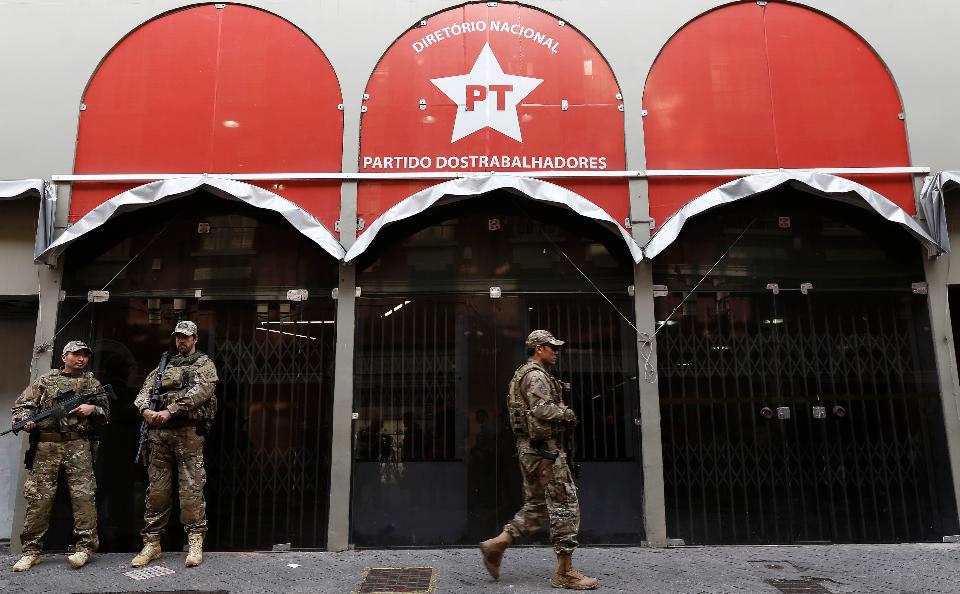
SÃO PAULO – There is little end in sight for the corruption scandal that has been rocking Brazil since March of 2014. Currently in its 32nd phase, the so-called ‘Car Wash’ investigation has revealed a multi-billion dollar kick-back scheme implicating directors of national oil company Petrobras , as well as a number of politicians and executives from construction companies. Dozens of high-profile individuals have been sentenced thus far.
A new twist has grasped the attention of Car Wash observers in recent probes: the large number of new targets not directly involved with the initial corruption scheme. Companies in the infrastructure sector – where the ‘Car Wash’ operation has uncovered a cartel to rig bids, and corrupt public officials and Petrobras managers – remain the main focus of attention. However, recent operations have pointed to growing scrutiny in sectors as diverse as pharmaceutical, healthcare, food processing, electricity, entertainment and financial.
The key to explaining the continuous expansion of the Car Wash investigation is the large number of plea bargain agreements: more than 60 people, including company executives, lobbyists, money launderers and politicians, are currently under such deals, providing law-enforcement authorities with privileged information about a wide range of corruption networks in the country.
Recent operations have focused on corruption schemes in areas as varied as campaign financing in Pernambuco state, payroll loans by the Planning Ministry, public pension funds, and grants by the Ministry of Culture. The latest investigations will also be examining public works in Goiás state, railway concessions and the state-owned rail company Valec, as well as Petrobras’ Research and Development Centre.
While the revelations made by these corruption investigations are highly likely to implicate high-ranking members of the ruling Brazilian Democratic Movement Party (PMDB) coalition, the government is unlikely to actively oppose or to successfully block on-going probes. The investigations, particularly operation ‘Car Wash’, have gained traction and huge popular support, meaning that any attempt by the government to interfere would risk a severe backfire in the streets – and ultimately a blow to its legitimacy. As such, scrutiny is expected to persist in the near term, and will affect an increasingly large number of economic sectors in Brazil.
As a result of several spin-off investigations, there are now prosecutors across several other states (including Rio de Janeiro, Minas Gerais and São Paulo) actively exchanging information and expertise with their counterparts in Curitiba, where the Car Wash task force is based. This trend is likely to ensure that momentum is kept behind the multiple fronts of investigative activity. In addition, there are also dozens of individuals currently under preventative arrest, many of whom are negotiating the terms of their plea bargain agreements. Fresh allegations are likely to continue emerging in the next few months as new informants provide further information of previous and on-going corruption schemes.
These investigations bring new challenges for foreign investors actively seeking to benefit from the real’s devaluation. Companies operating or willing to operate in Brazil need to adapt to changing circumstances, and a business environment where greater scrutiny of business practices is the new normal – as opposed to just another temporary crackdown. Although high-level political corruption tends to dominate the headlines, businesses are more likely to encounter corruption when dealing with lower levels of government authorities.
Excess bureaucracy and the wide range of regulatory agencies facilitate such small-scale graft because there are several opportunities in the process to solicit bribes or facilitation payments. The politics of patronage further exacerbates the problem of government corruption; each incoming administration has the authority to make more than 22,000 appointments to public-sector posts.
While the progress made in the crackdown on corruption highlights the growing independence of law enforcement agencies vis-à-vis the government, the large number of spin-off operations stemming from the ‘Car Wash’ investigation confirms that stricter law enforcement is not a one-off, isolated event, but rather the by-product of structural changes in the Federal Police (PF) and the Federal Prosecutor’s Office (MPF). These bodies have improved their ability to uncover and investigate corruption schemes free from political interference, as referenced above.
A similar development has taken place in the anti-trust space. Over the past decade, the Administrative Council for Economic Defence (CADE) – Brazil’s main anti-trust body – has moved from being principally a merger review system to actively investigating and prosecuting cartels, often with the use of leniency agreements and in cooperation with criminal courts overseeing corruption cases.
Legislative changes such as the 2014 Clean Company Act (CCA) have also provided a stronger anti-corruption framework and hardened the penalties against companies engaged in malpractice, from administrative sanctions and severe fines to civil lawsuits. The trend of greater enforcement reflects more than a decade of the empowering and strengthening of regulators, and is likely to continue in the short to medium term. and will be instrumental to creating a more transparent business and the adoption of more mature compliance, governance and risk management practices in Brazilian companies in the long run.
adidas superstar damen glitzer silber


